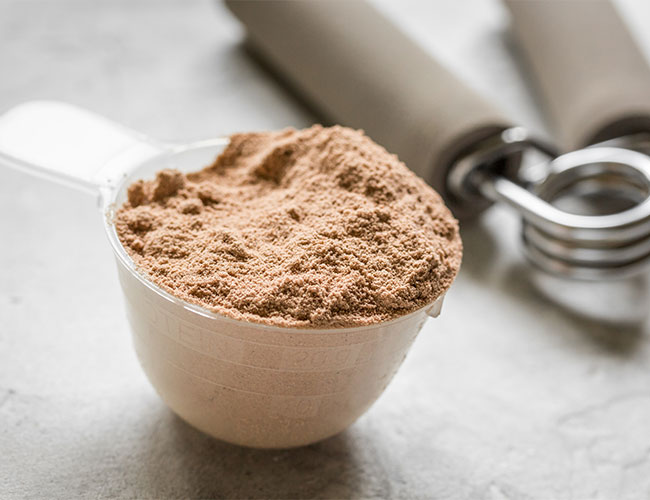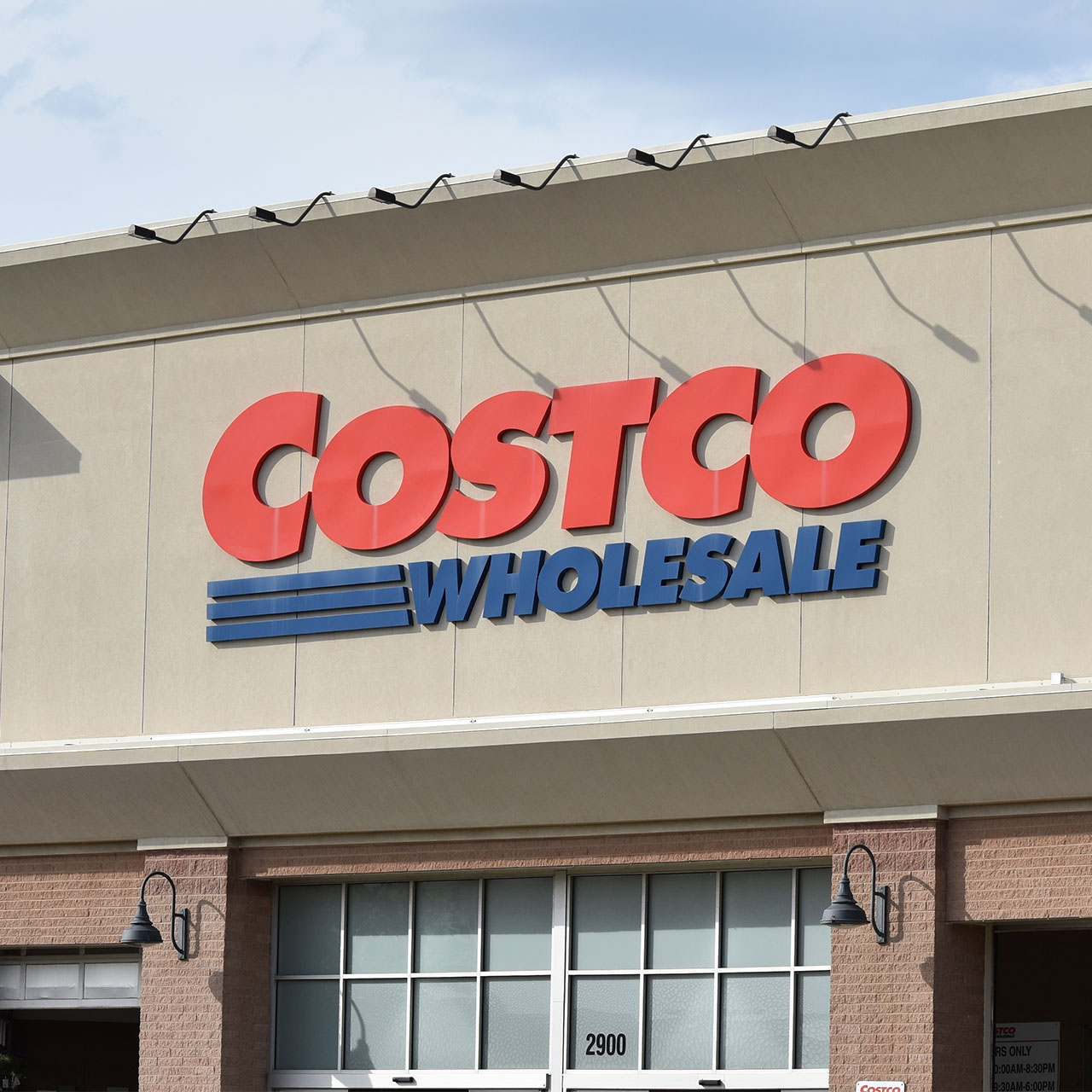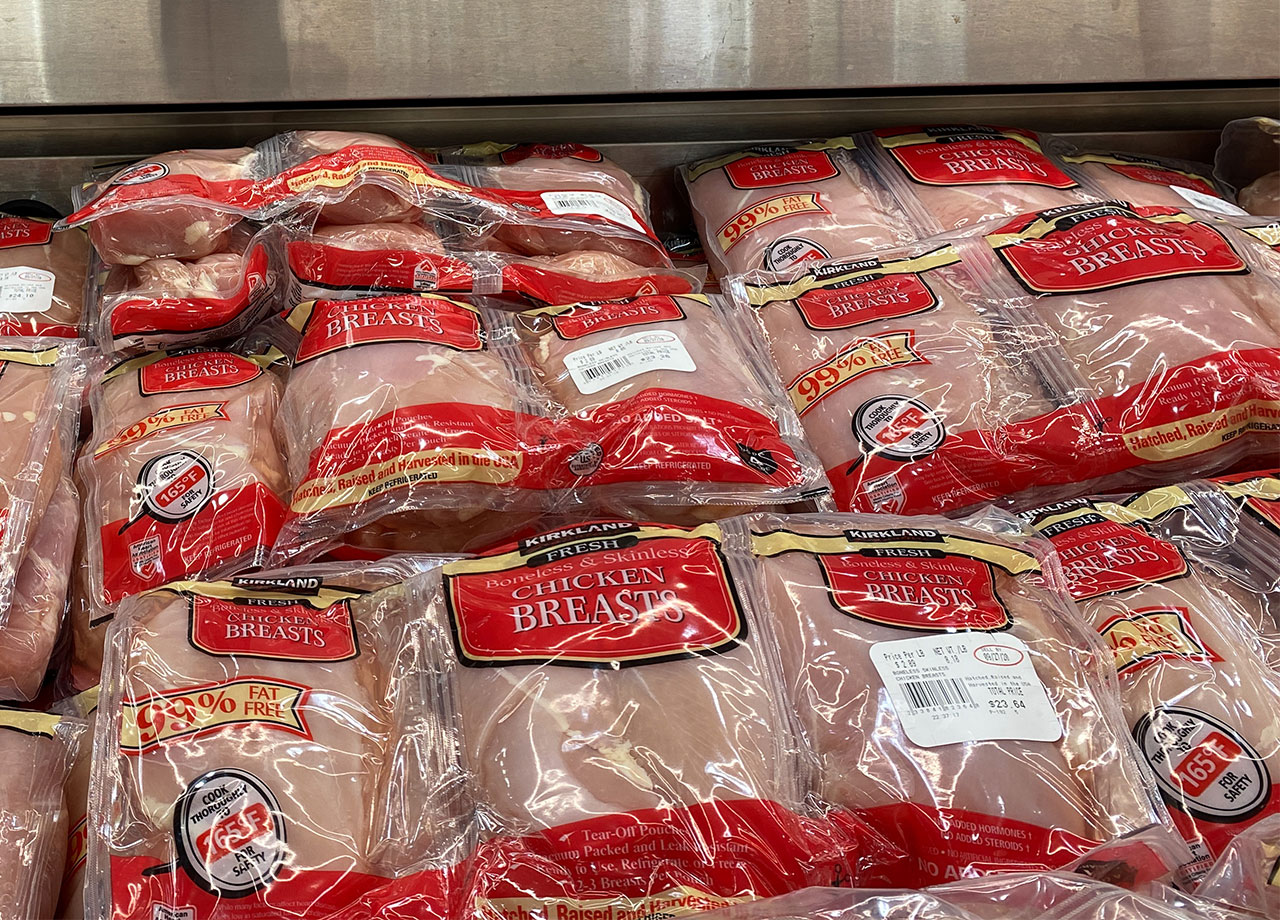Anyone will tell you that protein is an essential component of a well-rounded diet. Making sure you eat enough of it each day is vital, whether you’re looking to build muscle, gain weight, or even slim down. However, not all proteins are created equal; while natural, protein-packed meats, whole grains, fruits, and vegetables are all great options, there’s one surprising protein source that could have adverse effects on your body, especially when it comes to your digestive system.
We spoke to dietitian Dana Ellis Hunnes PhD, MPH, RD and author of Recipe for Survival about this one protein that could be wreaking havoc on your body: protein powder.


Protein powder could cause digestive issues
Many people looking to pack some extra protein into their diets, such as athletes, supplement with protein powder. This popular product is typically mixed into smoothies, protein shakes, and other meal replacements. However, Hunnes says consuming protein powder isn't always the best way to achieve a well-balanced diet—especially for those who struggle with digestive issues. The reason may surprise you!
There are several reasons protein powder may lead to bloating and other digestive problems, but a major one is the fact that you could be getting too much protein in your diet when you supplement with this product.
The truth is that our bodies typically need much less protein than supplement industries may lead us to believe. Hunnes breaks it down for us: "The RDA (recommended dietary allowance) for protein is only 0.8grams/kilogram of body weight (or roughly 0.3636 grams of protein per pound of body weight)," she says. "This means an average healthy 140-pound woman only needs 51 grams of protein per day." Meanwhile, Hunnes notes that many protein drinks and powders can contain as much as 30 grams of protein per portion. That's enough to put you way over the recommended allowance if you're consuming these products on a regular basis.
So, what happens when you go overboard on protein powder and end up with too much protein in your diet? "The excess protein (calories) turn into fat," Hunnes explains. "Too much protein can be harsh on the kidneys that have to filter all of that, and it can be hard on the digestive tract, depending on the type of protein."
There are several different types of protein powders, and each comes with its own possible adverse effects. Casein, for example, is a cow's milk protein that may coagulate in the stomach, as Hunnes explains. Plant proteins may also cause digestive issues stemming from their naturally-occurring fibers. While Hunnes notes that whey is often well-tolerated, it does come from cow's milk, so if your body doesn't handle dairy well, it might not be the best option for you.
Generally speaking, protein powder is a processed food. Oftentimes, meal replacement products like protein shakes also contain high amounts of sugar, which can take a toll on your digestive system. That's why Hunnes suggests getting your protein from naturally-occurring foods: "We are best to get our proteins naturally from foods rather than adding extra protein supplements and powders to our diet, unless we need to gain weight," she says. Noted!
The best way to get protein
Hunnes has a few suggestions to achieve a well-balanced diet with the proper amount of protein. "For the general healthy person who is just trying to put on muscle or lose weight, I strongly recommend a healthy, whole-food, plant-based diet that contains several varieties of whole grains, fruits, vegetables, nuts, seeds, and legumes," she says.
Ultimately, most people can do without additional protein powders—especially those who want to avoid bloating and other digestive issues.


























